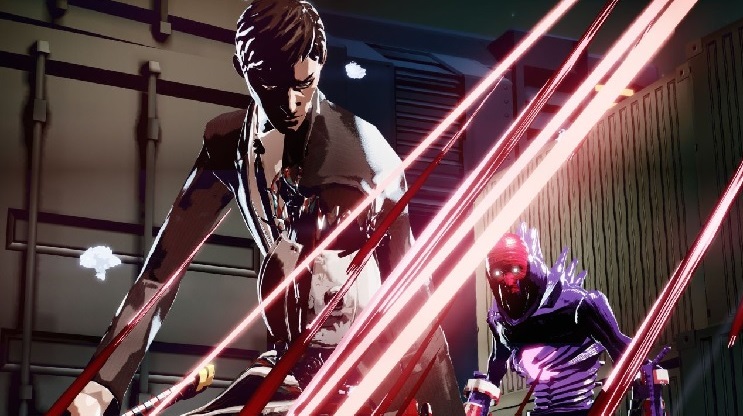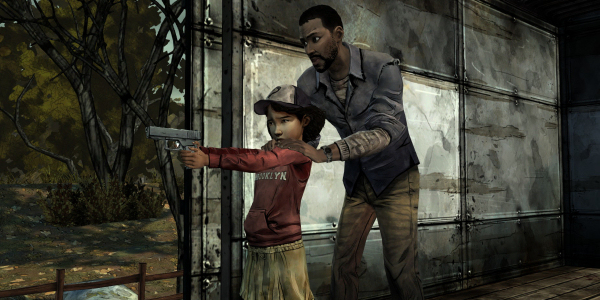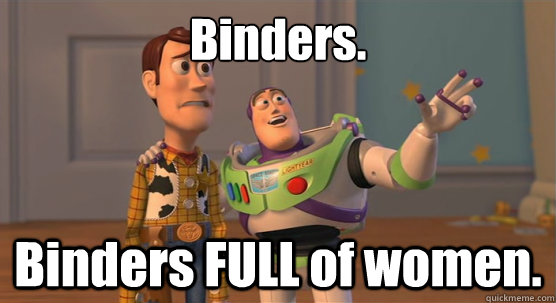Bianca: A couple weeks ago, Alisha wrote about feminist game scholarship, and since then, she and I have been talking a lot (and texting a lot) about feminist theory, game studies, and the intersection of the two. That is to say, we’ve been trying to work through, together, how to articulate the need for a feminist lens in the study of games and how to articulate how a lens might be oriented. And so we figured, hey, let’s continue this conversation in a blog post!
Alisha: Though, really, we’ve been talking about this forever — the need for feminist game studies has long been a point of contention for us. Feminist methods for inquiry are rich and vast… and everywhere else. So little work has been done in games. We’re forever fitting lenses upon lenses here, comparing games to other media, fitting square pegs into slightly different-sized square holes. In a sense, that’s good; it means we’re busy, that there’s lots to do, and that we have long traditions in other areas to draw on. But that also means those of us pursuing games scholarship from feminist frameworks are often encountering the resistance I wrote about in the above-referenced post.
Feminist games studies, though, are essential. In some ways, games are the great final frontier (for now) in terms of media and audience engagement. The sprawling games industry impacts so many lives, and so much of those lives, from creators to players to the fringes.
Bianca: Alisha makes a good point here about both the benefits and challenges of applying feminist frameworks to the field of game studies, and this tension is something I’ve written a little about already as well. And as I’ve written before, I think that what makes feminist game studies so essential (as Alisha puts it) is not only the important fact that games impact so many people’s lives in so many ways but also the fact that making use of a feminist lens in the ways we interrogate video games and the gaming industry allows us to disrupt the dominant, normative discourses surrounding games and the ways these discourses privilege certain players and modes of play. In other words, through such disruption, feminist game studies allows us to open things up, to broaden our understanding, to make the world of video games less exclusionary for those who study and play them.
Some people might argue that such goals are not necessarily the aims solely of feminism but that other modes of inquiry or analysis might have similar goals as well. And whether or not this is the case, I think that what makes feminist study and activism so important is the fact that the stakes are so high. In fact, in Undoing Gender, Judith Butler says that at the heart of feminist thought is “the question of survival itself.” This framing of feminism as being, ultimately, about survival, is something that has stuck with me, and so I think that these are the stakes at the heart of feminist game studies’ efforts at disruption and change–it’s disruption and change in the name of survival.
Alisha: I think that disruption becomes extremely important because of the ways games can be compared to films. I’m not thinking about cinematics here, but rather processes. Where Ian Bogost sees the rhetoric of procedures, of machines, I see the rhetoric of teams of bodies producing artifacts for other bodies — but games, unlike films, welcome those bodies in and ask them to participate. That participatory nature already positions us naturally within feminist frameworks, and yet so much of the scholarship within the history of games has come from other quarters. That participatory nature is also why Bianca’s above notes about exclusion is so important. For instance — and understand that I’m not trying to say here that games caused anything, or that games can fix the world — but when we see incidents like the Tamir Rice shooting, like the Philando Castile shooting, I have to wonder how much of that we can lay at the feet of media that dehumanizes anything outside dominant character representation. That is, if in films, Black characters are usually based heavily in tropes, but in games, they often don’t even exist, as options or characters, what does that tell the audience about who can participate? Who can play? Who can be? What are we learning that comes back with us into the “real” world after we learn to navigate game worlds with such strict definitions of who can even be?
 But even those characters who can be are narrowly defined. Look, for instance, at Nathan Drake. Frankly, he’s a thug. He’s a witty, charming, self-interested thug, and while the (white) male action hero has been studied extensively within the realms of film and literature, we’ve barely begun to brush the surface in games, and games ask players to embody that role. To become that character who is a thug — but who also isn’t. Because he’s a hero. Because he’s white. Suddenly, the toxic connotations are erased. They become jokes, asides, just part of what you do. What a metaphor for the world. And what lessons come with embodying that role — lessons that may change based on player identity.
But even those characters who can be are narrowly defined. Look, for instance, at Nathan Drake. Frankly, he’s a thug. He’s a witty, charming, self-interested thug, and while the (white) male action hero has been studied extensively within the realms of film and literature, we’ve barely begun to brush the surface in games, and games ask players to embody that role. To become that character who is a thug — but who also isn’t. Because he’s a hero. Because he’s white. Suddenly, the toxic connotations are erased. They become jokes, asides, just part of what you do. What a metaphor for the world. And what lessons come with embodying that role — lessons that may change based on player identity.
Bianca: I think Alisha is completely right in the connections she’s making here, and I think that what it comes down to when we look at a character like Nathan Drake is the manner in which privilege and embodiment intersect in such a character. (To be sure, such an intersection is the case for so many of games’ “antiheroes”–I’m looking at you, Joel.)
Alisha: Don’t get me started on The Last of Us.
Bianca: And I think that’s why feminist game studies matters. Sure, like Alisha said, this is not to say that games can change the world–but that games exist in the world. And that the people who exist (or don’t) in games converse with the cultural context in which games are embedded. So we need to interrogate them, we need to problematize them, and we need to think about how games are situated within the rest of the world. And that’s something that feminist thought allows us to do.
Alisha: And, thus far, games have been concerned with figuring out what they really want to be — and games scholars have been busy figuring out what games are, and what they aren’t. But maybe it’s time to do other work, too.
Bianca: This all is bringing to mind for me Patricia Hill Collins’s discussion of controlling images and the ways such stereotypes (or, what Dorothy Roberts refers to as the “derogatory icons” of the popular mythologies of American culture) are used in service of ideologies of domination–ideologies that make racism and sexism seem normal and natural and static. Feminist thought seeks to dismantle such ideologies, to show that they are not static, that they can be changed, that they can (and should) be disrupted. And such feminist thought needs to continue to be applied to the kinds of controlling images we see in games in particular because these images are a part of the tapestry of such representations that contribute to the ideologies of domination and oppression that need to be disrupted.
Alisha: I think the discussions to be had around controlling images are incredibly important… but we need also to talk about what’s not there. Maybe that’s where we meet, Bianca. So often, lit studies folks are analyzing what’s there, while rhetoricians may bring up what isn’t — and there’s so much we don’t see in games, so much that’s thus rendered invisible, simple because it’s been left out of the system. An accident of the (human-powered) machine that yet has much broader implications. Maybe this is why we need many people from many fields coming together to study games — which are themselves the products of many people in many fields.
Bianca: This is dead on–what is left out matters just as much as what is put in and, as you say, multiple perspectives, multiple angles, multiple lenses are needed to complicate our understanding of the complicated notion of games.
Alisha: But there’s a lot to consider. So next time, we’ll tease it out. See where it leads. Not that we haven’t been here before; after all, so much of what we do is already grounded in feminist inquiry. But here, I think we can work on burrowing more deeply into what already exists. We can hollow out a space that will get bigger as games studies grows (or, at the very least, have a few more conversations about it).




